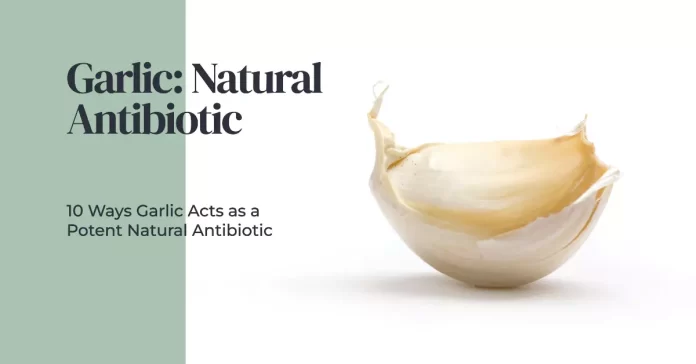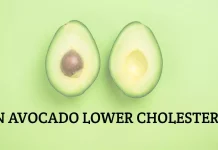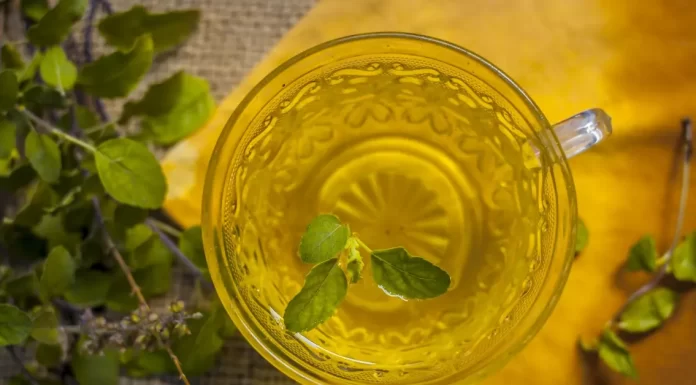
Natural remedies for common ailments, garlic is a superstar due to its potent antibacterial properties and numerous health benefits. This small but mighty bulb has been used for centuries not only to add flavor to our dishes but also for its remarkable health benefits. Among its many talents, garlic shines as a potent natural antibiotic. We will explore how this kitchen staple can help combat infections and boost your well-being.
Here are the 10 Ways Garlic Acts as a Potent Natural Antibiotic
Allicin Powerhouse
The secret behind garlic’s antibiotic properties lies in a compound called allicin. When garlic is crushed or chopped, it releases allicin, a potent organic sulfur compound known for its antibacterial properties.Effective Against Bacteria
Garlic’s allicin doesn’t just pack a punch in terms of flavor; it’s a powerful weapon against bacteria. It can inhibit the growth of harmful bacteria, making it an excellent addition to your diet when you’re feeling under the weather.Fights Viral Infections
Garlic doesn’t stop at bacteria; it also exhibits antiviral properties. It may help your body prevent viral infections, including the common cold and flu.Natural Immune Booster
Regular consumption of garlic can strengthen your immune system, making it more resilient against infections. It’s like giving your immune system a little extra armor.Garlic’s Anti-Inflammatory Magic
Inflammation is your body’s response to infection, but sometimes it can go into overdrive. Garlic’s anti-inflammatory properties can help calm the storm and promote healing.Wound Healing Wonder
Applying crushed garlic to wounds may help prevent infections and expedite healing. However, be cautious and consult a healthcare professional for severe injuries.Sinusitis Soother
Garlic’s antibacterial properties make it a natural remedy for sinusitis. Regularly inhaling garlic steam or consuming it can help ease the discomfort of sinus infections.Digestive Health Support
Garlic can assist your digestive system by promoting the growth of beneficial gut bacteria while inhibiting harmful ones. A healthy gut is essential for overall well-being.Blood Pressure Regulation
Garlic may contribute to lower blood pressure, reducing the risk of heart disease and related infections. Remember, it’s a supplement to a healthy lifestyle, not a replacement.Versatile and Delicious
The best part? Garlic is incredibly versatile. You can add it to almost any dish, from soups to stir-fries, for a flavorful and health-boosting twist.
Conclusion
The potent antibiotic properties of garlic, driven by allicin, make it a versatile and natural remedy for infections. Garlic offers a range of benefits, from fighting bacteria and viruses to enhancing immune response and digestive health, making it a valuable addition to your diet. However, it’s essential to remember that while garlic can support your health, it should not replace professional medical advice or treatment.
Frequently Asked Questions (FAQs)
Is garlic a natural antibiotic?
Yes, garlic contains compounds like allicin that can help combat certain bacteria and infections.
How does garlic work as an antibiotic?
Garlic’s active component, allicin, disrupts the growth of harmful bacteria, acting as a natural antibiotic.
Can garlic replace prescribed antibiotics?
Garlic can complement antibiotics, but it’s not a substitute for prescribed medication, especially when dealing with severe infections.
What’s the best way to use garlic for its antibiotic properties?
You can include fresh garlic in your cooking or take garlic supplements for its health benefits.
Are there infections garlic may not treat effectively?
Garlic’s effectiveness varies, being more potent against specific bacterial and fungal infections, but its effectiveness isn’t universal across all types of diseases.
Are there any side effects of using garlic as an antibiotic?
Some people might encounter digestive problems or allergies when consuming garlic.
Can garlic interact with the medications I’m taking?
Yes, garlic can interfere with blood-thinning medications, so consult your healthcare provider if you’re on any.
How much garlic should I consume for its antibiotic effects?
There’s no specific recommended dosage for garlic, but it’s wise to consume it in moderation.
What precautions should I take when using garlic as an antibiotic?
If you have allergies or take other medications, it’s wise to consult a healthcare professional before using garlic supplements.
Can garlic prevent infections altogether?
While garlic can support your immune system, it’s most effective when combined with good hygiene and a healthy lifestyle for infection prevention.
- Is Ginger Water the Secret to Effortless Weight Loss?
- Bitter Melon: A Natural Weapon Against High Blood Sugar
- 10 Proven Dengue Prevention Tips to Stay Safe from Mosquitoes
- Fast Relief for Coughing: Proven Home Remedies and Treatments to Try
Garlic Microbial Myths Fact or Fiction?
Ancient cultures independently harnessed Garlic’s medicinal potential for treating respiratory, digestive, and parasitic ailments long before the advent of modern Western medicine. Allicin, Garlic’s primary antimicrobial compound, disrupts microbial cell processes by interfering with thiol-containing enzymes (Hagan, Ada, Ph.D., Old Wives’ Tales and Garlic as an Antibiotic: Are Microbial Myths Fact or Fiction?).
Its broad-spectrum antimicrobial activity extends to gram-positive and gram-negative bacteria, Mycobacterium tuberculosis, viruses like influenza and herpes simplex, fungi, and mycotoxins. While allicin is a potent defense, some bacteria with protective mucoid layers remain unaffected. Garlic’s historical and contemporary role in fighting infections is a testament to its enduring effectiveness.









